First report on sexual harassment among students at CBS calls for further action

(Photo: Mette Koors)
For the first time ever, CBS has investigated sexual harassment in the study environment. A total of 429 out of 22,000 students replied to the survey, which concludes that 41% have experienced sexual harassment, and 82% don’t know where to get help at CBS. Co-author of the report and Professor at CBS, Sara Louise Muhr says that the results are alarming, and the report calls for further action from all sides within CBS.
Sexual remarks about physical appearance. Negative comments or jokes about gender. Unwanted physical contact.
In the first ever survey about sexual harassment in the study environment at CBS, 41% of the 429 participants said they have experienced some form of sexual harassment at CBS, while 58% indicate that they’ve witnessed it. Also, 82% of the respondents stated that they didn’t know where to get advice or help at CBS should they experience sexual harassment.
Read the report: Let’s talk about sexual harassment
“The survey shows that sexual harassment is present and a considerable problem for students,” states the report, which was conducted by Professor Sara Louise Muhr from the Department of Organization at CBS, Bontu Lucie Guschke, Farhiya Khalid and Kaitlin Busse with support from CBS PRME.
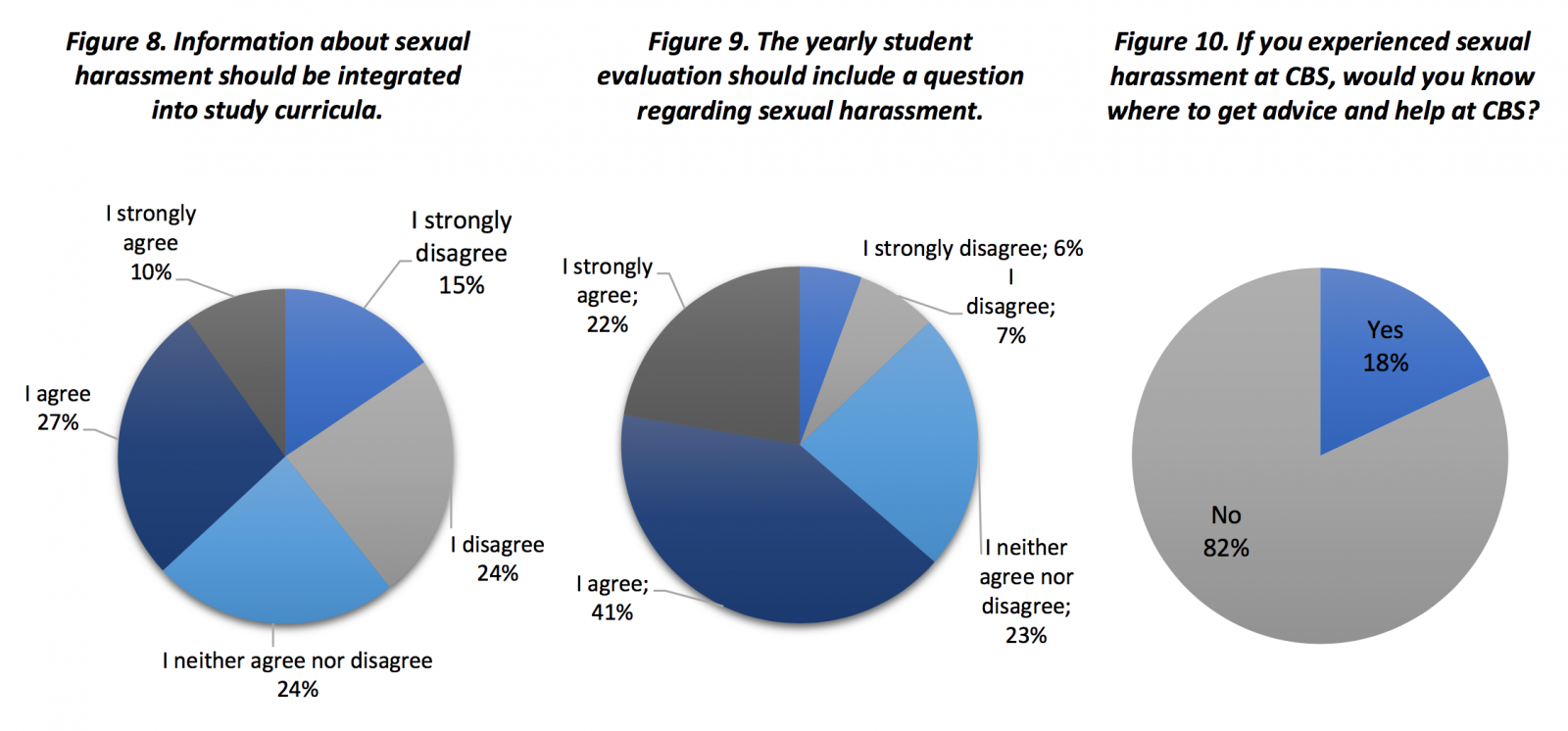
Another issue highlighted by the survey is the normalization of sexual harassment in a university context.
“A great part of the behavior, which is perceived as sexual harassment, is nonetheless deemed as acceptable or normal in the study environment,” says the report, which concludes that more action is needed:
“We need to work collectively on changing our university culture to a less sexist, more open and tolerant one, and to foster diversity and inclusion in our study environment – an effort that everyone from management, faculty, staff and students needs to get involved in.”
Alarming results
Mette Gøtterup-Tang, Study Coach at CBS and one of three employees who have been specially appointed to help CBS students who have experienced harassment of any kind, says after reading the report:
“We take cases of sexual harassment very seriously, and it’s a topic we continuously discuss how to deal with. One insult or transgression is simply one too many.”
The intern survey is in line with several surveys on sexual harassment among students at Danish universities. In February 2018, the Danish Association of Masters and PhDs published a survey among their student members, which showed that sexism is part of everyday life as a student.
During the spring of 2018, the organization Universities Denmark and the National Union of Students launched a national survey among students at the eight universities to investigate the scope of the problem. In November 2018, the survey results revealed that 50% of respondents had been sexually harassed by another student.
Sara Louise Muhr finds the results of the intern survey alarming.
“It’s extremely problematic that students don’t know who to turn to. And it’s not just CBS; it appears to be a general problem that stems from a normalization of harassment. We don’t even consider seeking professional help or advice when we experience harassment because we don’t always see it as harassment. But when you ask students whether they have experienced different forms of harassment, it’s obvious that they have,” she says.
Mikkel Nielsen, the President of CBS Students, has read the report, and is especially concerned about the fact that students don’t seem to report incidents of sexual harassment.
“The study indicates that the majority of students who have been sexually harassed don’t feel that it’s worth reporting to the police or dedicated university staff. It strongly indicates that it’s a topic that we need to talk about a lot more,” he says.
Is this normal?
CBS students had the opportunity to complete the survey between June to October 2018, which not only asked whether the students had experienced forms of sexual harassment at CBS, but also what behavior they perceive and identify as sexual harassment.
For example, 85% of respondents agree that unwelcome touching, hugging and kissing are acts of sexual harassment, whereas 39% agree that inappropriate and intimidating staring or leering is an act of sexual harassment.
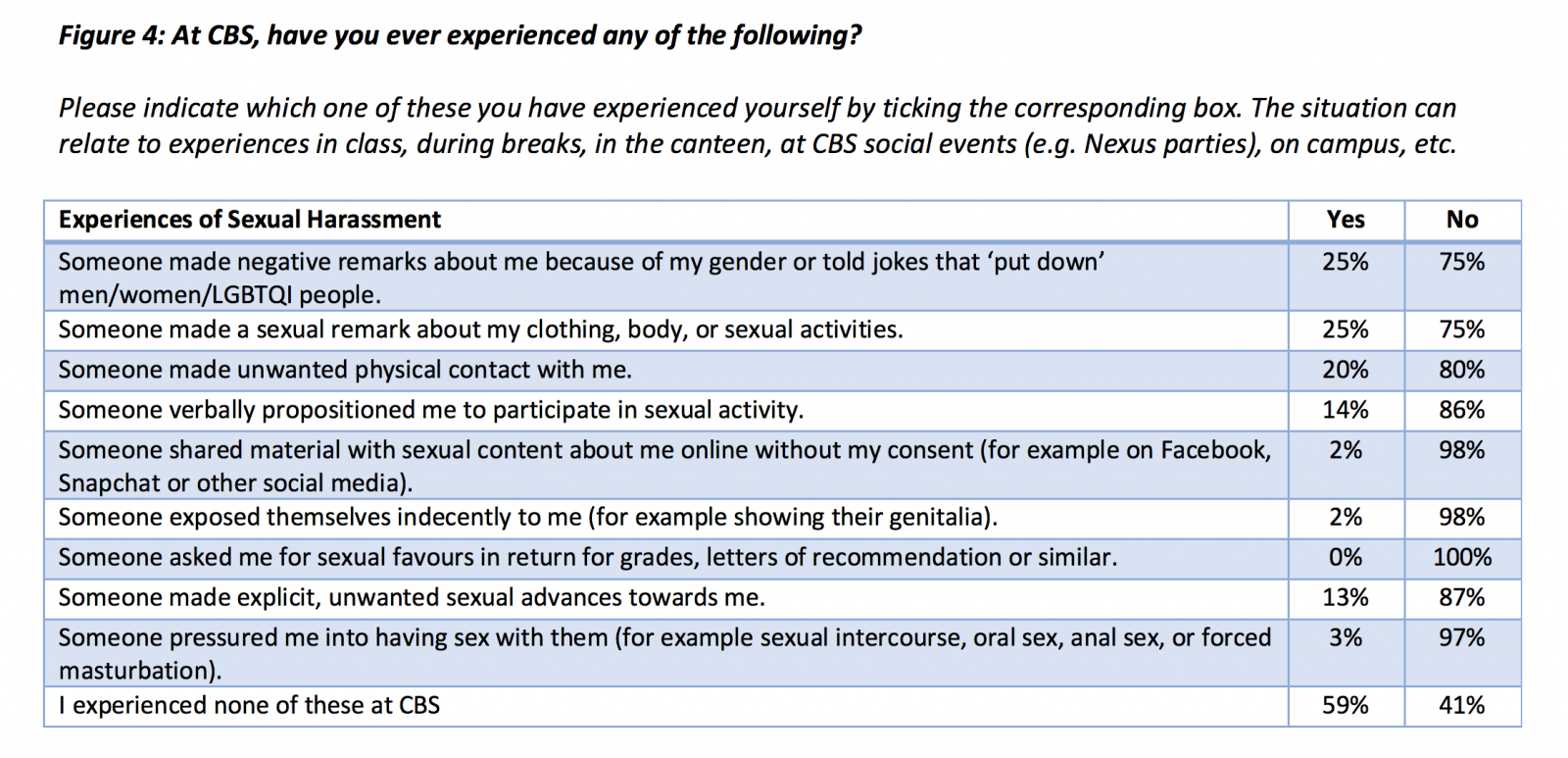
Furthermore, students were asked what behavior they regard as acceptable and normal in their study environment.
And this revealed some interesting differences, according to Sara Louise Muhr:
“The international students in the survey indicate in the comments that they find the Danes’ behavior towards each another shocking, and that our humor is often quite patronizing in one way or another,” she says and continues:
“The main issue is that students are well aware of what sexual harassment is when they’re asked to answer yes or no in a questionnaire. However, that perception changes in ‘real life’. We slowly let ourselves get lulled by social norms, and we often don’t notice it. So when you want to speak up about an incident, you’re seen as the ‘boring’ one.”
Many students classify acts of verbal harassment, such as sexually inappropriate jokes or derogatory comments about gender or sexuality, as normal behavior, even though many also explicitly label them as acts of sexual harassment, the report concludes.
Wilbert van der Meer, the Head of the Dean’s Office, find the results of the survey important as they provide a new perspective on the problem.
“What’s interesting about this survey is that it’s not only about obvious cases of unlawful insults, it also gives an insight into acts that aren’t necessarily meant as an insult, but are perceived as such,” he says and continues:
“That is particularly important as this cannot be solved through regulation, as it’s a question of culture. It can raise questions about what role the university should play in teaching young adults how to behave.”
Dialogue is the way forward
“We have to question this behavior, which has become the norm. I’m not saying we should police each other, but we have to admit that we have somehow normalized it,” says Sara Louise Muhr, and suggests that students are taught about the pitfalls of this behavior as part of the curriculum.
“We have to teach our students this, and I often think about how little we teach them about gender theory, as it greatly impacts our work lives,” she says.
On the other hand, a classic myth stands in the way of having an open discussion about the issues experienced by students.
“There’s a myth in Denmark that we’re all equal. And as there’s still some way to go before gender equality is achieved, this myth will continue to exist, and we won’t see how big a problem sexual harassment is.. We have to put this myth to bed before we can talk about these problems properly,” she says.
Mette Gøtterup-Tang agrees that dialogue is the best weapon in the arsenal when dealing with sexual harassment and harassment issues in general.
“We are constantly working on how we can create a dialogue on this issue. During semester start, we ran a campaign about good study life, which focused on how we act and behave towards each other,” she says and explains that a task force consisting of members of faculty and students are working on new initiatives with the aim of promoting and creating dialogue – both in relation to sexual harassment, but also proper behavior in general.
“I expect we’ll have different initiatives coming out of this task force continuously. That’s the plan,” she says.
Wilbert van der Meer adds:
“On one hand, we’re still working on how to make it totally clear what is acceptable behavior, for example during the intro weeks. On the other, we’re trying to provoke a debate about the culture and get everyone to reflect on their behavior, for example through the campaign about a good start at CBS,” he points out.
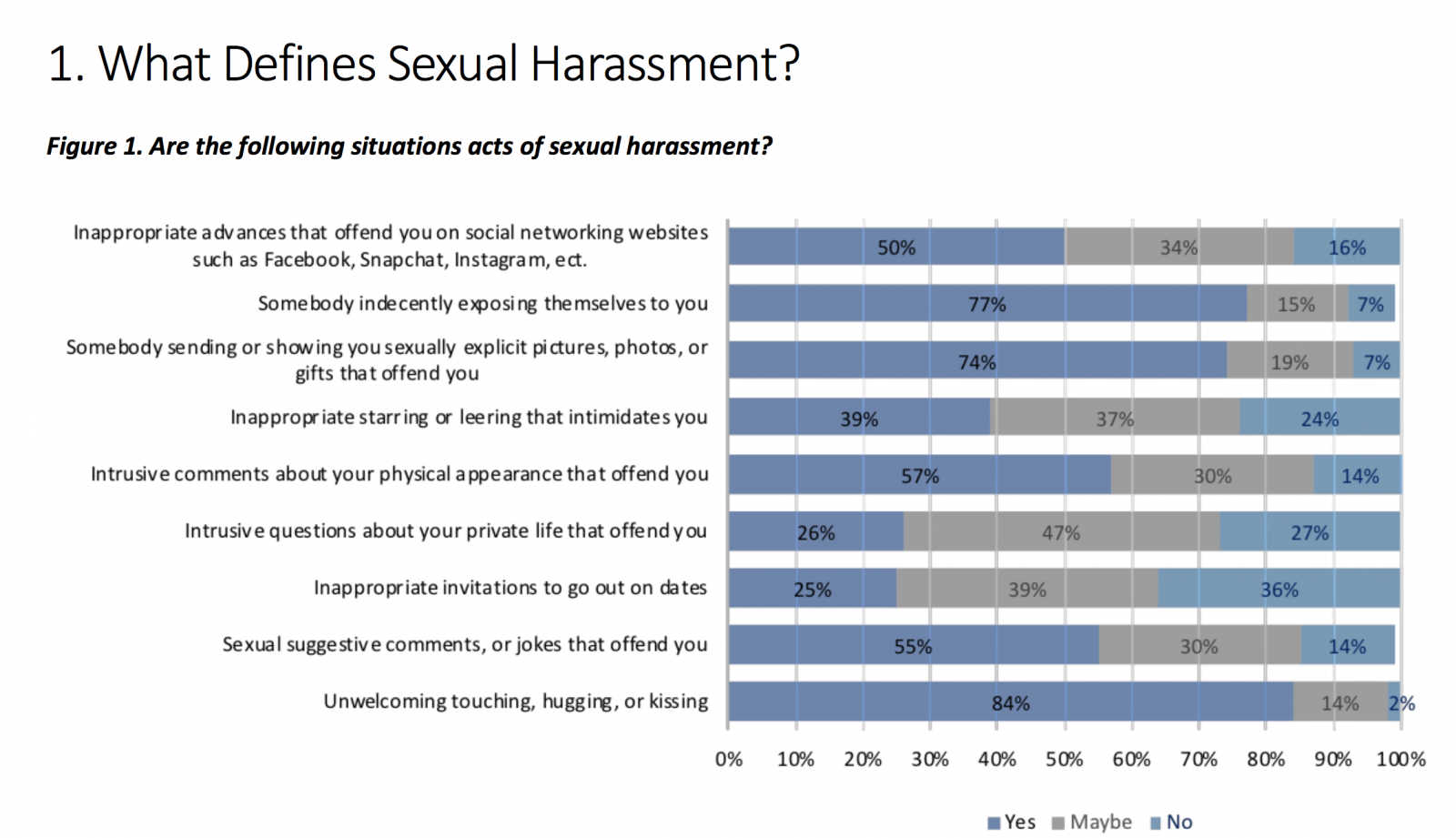
Mikkel Nielsen wants more dialogue as well, but not only about sexual harassment.
“Dialogue is the way forward since sexual harassment is in many ways subjective. Furthermore, I believe it’s important that we concern ourselves not just with sexual harassment but harassment in general,” he says.



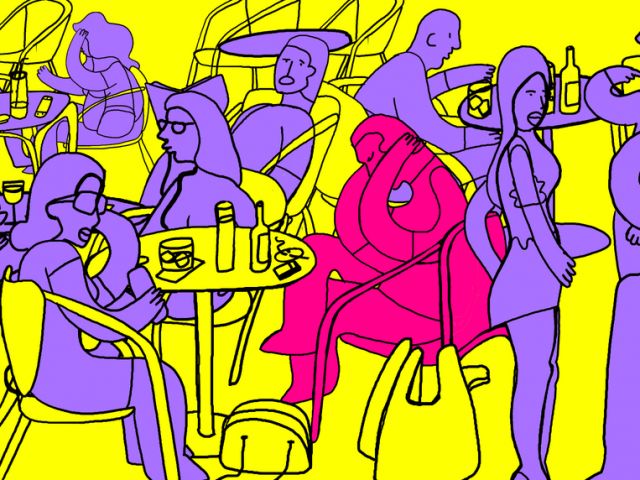
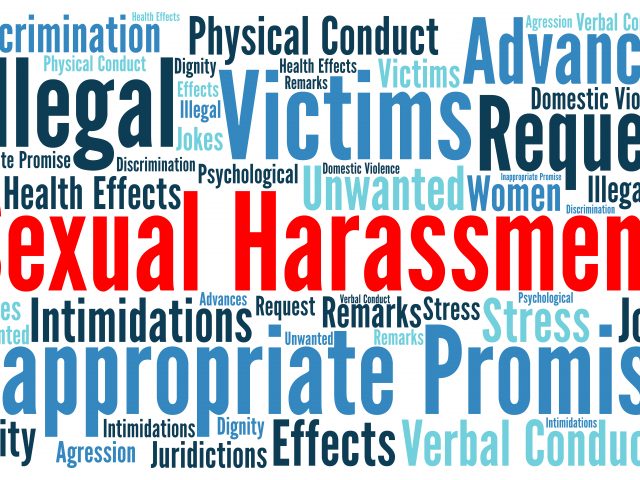

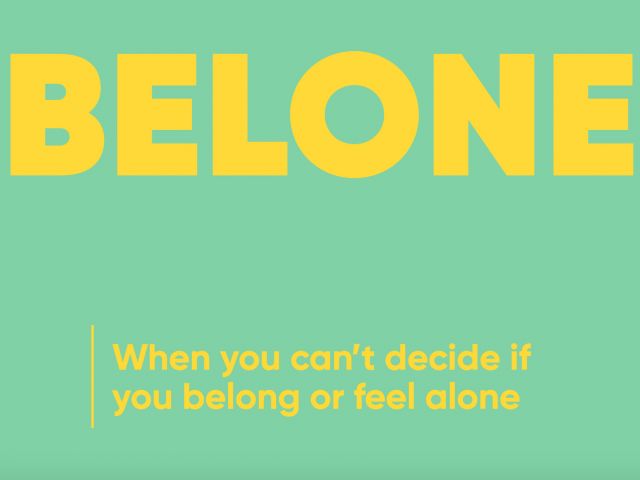






























































































































Som mor til en studerende og selv masterstuderende er jeg ikke overrasket. Åbn øjnene og se Jer omkring.
Studer, analyser og konkluder: Medarbejdernes klædedragter. De studerendes ditto. Talerne til eksamensoverrækkelsen. Festernes temaer. De mange mænd med jakker, der har adgang til podierne. CBS er ekstremt kønnet.
This is a very important issue, and it’s good that CBS has tried to investigate it. However, the method seems pretty questionable. When only 429 out of 22,000 possible respondents actually participate, why do the authors then treat the answers as quantitative data that is fit for statistical analysis?
According to the article, 41 per cent of the respondents have been sexually harassed — but when you remember the number of respondents, this actually means that around 1 per cent of the students have been harassed. This is still too high a number, no doubt, but why do neither CBS Wire nor the authors tell openly about this methodological limitation of the report?